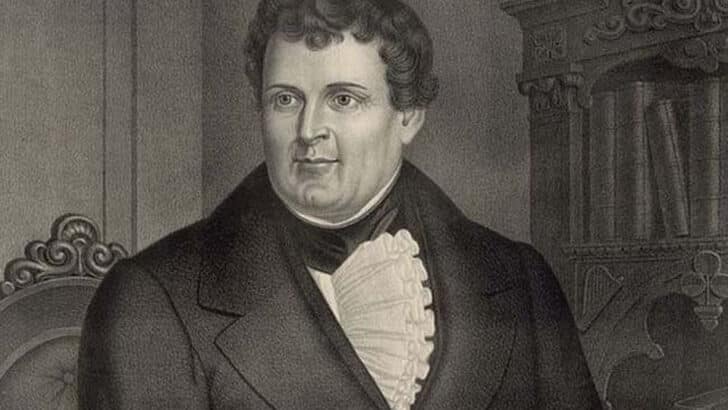It is disappointing – if not surprising – that the newly-formed Irish government does not plan to celebrate the 200th centenary of Catholic emancipation in 2029.
They have earmarked several other important dates which will occur under their stewardship: 2026 for the 250th Declaration of US Independence; 2027 marking the birth of Hanna Sheehy-Skeffington and the death of Constance Markiewicz; 2028 for the anniversary of the original Irish pound; 2029 the 300th anniversary of Jonathan Swift’s “A Modest Proposal” (in which he satirically suggested the Irish should kill their babies and eat them to remedy hunger.)
But – although Daniel O’Connell’s birth (in August 1775) will be marked this year – nothing is planned to formally observe Catholic Emancipation in 1829.
Disappointing
It’s disappointing, if not surprising. The anniversary was very publicly celebrated in 1929 – and therein lies the problem. Catholic Emancipation – Daniel O’Connell’s great achievement – was a genuinely enlightened, and indeed liberal measure, enacted in the face of opposition by those who would now be called “far-right”. But the Free State government in 1929 used it to stamp a Catholic identity on the fledgling Irish state.
Surely they could mark this historic occasion, and take a more nuanced, sophisticated approach?”
The government all but handed over the celebrations to the Church hierarchy and the Catholic Truth Society, which aroused accusations of sectarianism from those not in sympathy with the event.
Predictably, today’s political class seek to disassociate themselves, as much as possible, from that previous brand of “Catholic Ireland”, which the first Cumann na nGaedheal government was so anxious to embrace. I think it looks rather cowardly to disown the past, but there it is.
Yet surely they could mark this historic occasion, and take a more nuanced, sophisticated approach?
The Catholic Irish people – who had met with long discrimination in their own country – were entitled to mark this significant piece of legislation as a victory. This should be understood in the context of its time.
Progressive
But the 1829 Act can be also be seen now as an important progressive event which paved the way for the emancipation of slavery, and eventually universal suffrage. Frederick Douglass, the American anti-slavery campaigner, said he took his inspiration directly from O’Connell’s example.
The Irish government could imaginatively re-interpret Catholic Emancipation for our time, and our world today.
And the perfect candidate to head up a celebration for 1829 is former President Mary Robinson. She is a great admirer of Daniel O’Connell, because he established the rule of law, and the principle that laws can be changed by parliamentary democracy – which is the foundation of political governance today.
I heard Mary Robinson say all this at a dinner at London’s Reform Club, founded to honour the Reform Act of 1832 – which followed in the wake of Catholic Emancipation – and prompted the movement towards universal suffrage.
Supporter of the Reform Act and co-founder of the Reform Club? Daniel O’Connell.
YMCA’s eclectic reinvention
The acronym “YMCA” has gone through some change over the course of my lifetime. As a youngster, it signalled the sports field where I used to play (but not on Sundays) in Sandymount, Dublin, this being an outpost of the Young Men’s Christian Association. This “YMCA” represented some upstanding Protestant Christians, some of whom attended church three times on a Sunday.
Then, “YMCA” somehow morphed into a very popular, very camp hit song in 1978, with accompanying video of fancily dressed young men in tight trousers singing the praises of the aforesaid association in America (which provided hostels for young men at budget prices). It became a global phenomenon for the Village People, and widely interpreted as a “gay anthem”.
And now it’s been embraced by President Donald Trump, whose politics, if not exactly aligned with the Sandymount Protestants of my childhood, certainly signal another revolution – to a Trumpian brand of conservatism. Topsy-turvey world!
*
The Jewish British conservative commentator Melanie Phillips has written a new book emphatically arguing that Judaism and Christianity built western civilisation – and the West will crumble if it does not support and uphold this legacy.
The title is unambiguous: The Builder’s Stone: How Jews and Christians Built the West – and Why Only They Can Save it. This is a theme which has appeared among several leading thinkers in recent years; Tom Holland’s Dominian – The Making of the Western Mind argues that secularists and atheists, even if they don’t know it, owe their moral values to the traditions of Christianity, and its Biblical source, Judaism.
Melanie started her political life as a left-winger, but the attacks on the family was one of the prompts which brought about a change of mind. Her new book is bound to be interesting, although also controversial: she is impassioned about seeing Israel as the beacon that lights our western civilisation. This will surely draw criticism: the Israel of the Bible is not, for so many Christians, aligned with Mr Netanyahu’s regime.


 Mary Kenny
Mary Kenny
